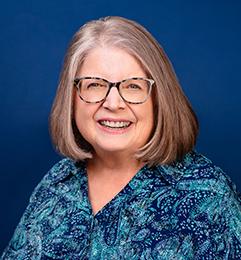IDEAS
Mindset for math
Coaching cycle empowers students and teachers
By Mary Mitchell and Sue Chapman
October 2018
Vol. 39 No. 5
Read the remaining content with membership access. Join or log in below to continue.
Sed ut perspiciatis unde omnis iste natus error sit voluptatem accusantium doloremque laudantium, totam rem aperiam, eaque ipsa quae ab illo inventore veritatis et quasi architecto beatae vitae dicta sunt explicabo. Nemo enim ipsam voluptatem quia voluptas sit aspernatur aut odit aut fugit, sed quia consequuntur magni dolores eos qui ratione voluptatem sequi nesciunt. Neque porro quisquam est, qui dolorem ipsum quia dolor sit amet, consectetur, adipisci velit, sed quia non numquam eius modi tempora incidunt ut labore et dolore magnam aliquam quaerat voluptatem.
Article study suggestions
- “Teacher mindsets and student learning”: https://mathsolutions.com/uncategorized/teacher-mindsets-and-student-learning/
- “Actionable feedback as a means of promoting a growth mindset”: https://mathsolutions.com/uncategorized/actionable-feedback-as-a-means-of-promoting-a-growth-mindset/
- “Helping struggling students build a mathematical mindset”: https://mathsolutions.com/uncategorized/helping-struggling-students-build-mathematical-mindset/
- Blog posts from Jo Boaler’s website: youcubed.org
A miniworkshop on mathematical mindsets
- Ask teachers to create mind maps representing how they think and feel about the subject of mathematics. Share and discuss the results.
- Review the Standards for Mathematical Practice (NGO Center & CCSSO, 2010, pp. 6-8) or your state’s standards for mathematical practices. Invite teachers to share their personal mathematics learning stories as they reflect on these standards.
- Share a productive belief and a parallel unproductive belief from Principles to Actions: Ensuring Mathematical Success for All (NCTM, 2014). Have teachers identify the underlying assumptions and consequences of each belief.
- Invite teachers to create “I wonder” statements related to mindset that could be investigated using an action research process.
References
Boaler, J. (2016). Mathematical mindsets: Unleashing students’ potential through creative math, inspiring messages and innovative teaching. San Francisco, CA: Jossey-Bass.
Costa, A. & Garmston, R. (2002). Cognitive coaching: A foundation for renaissance schools. Norwood, MA: Christopher-Gordon Publishers.
Dana, N. & Yendol-Hoppey, D. (2008). The reflective educator’s guide to professional development: Coaching inquiry-oriented learning communities. Thousand Oaks, CA: Corwin.
Dweck, C. (2008). Mindset: The new psychology of success. New York, NY: Ballantine Books.
National Council of Teachers of Mathematics. (2014). Principles to actions: Ensuring mathematical success for all. Reston, VA: National Council of Teachers of Mathematics.
National Governors Association Center for Best Practices & Council of Chief State School Officers. (2010). Common Core State Standards for Mathematics. Washington, DC: Author.
Saphier, J. (2017). High expectations teaching: How we persuade students to believe and act on “smart is something you can get.” Thousand Oaks, CA: Corwin.
Recent Issues
NAVIGATING NEW ROLES
April 2025
Whether you’re new to your role or supporting others who are new,...
LEARNING DESIGNS
February 2025
How we learn influences what we learn. This issue shares essential...
BUILDING BRIDGES
December 2024
Students benefit when educators bridge the continuum of professional...
CURRICULUM-BASED PROFESSIONAL LEARNING
October 2024
High-quality curriculum requires skilled educators to put it into...












